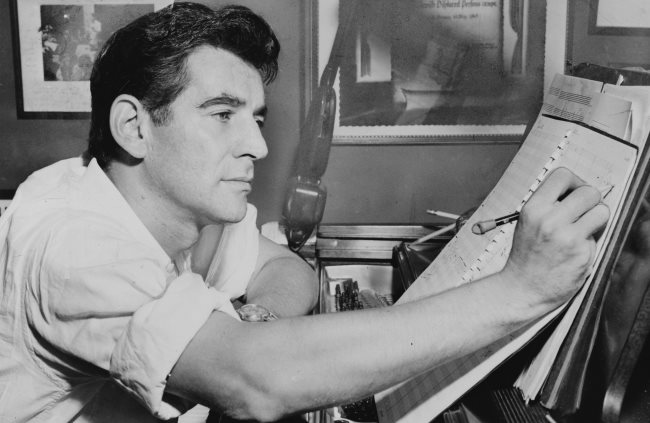Arthur Berger, Ideas of Order
by Byron Adams
Born May 15, 1912, in New York City
Died October 7, 2003, in Boston, Massachusetts
Composed in 1952, on commission from Dimitri Mitropoulos
Premiered on April 11, 1953 at Carnegie Hall by the New York Philharmonic conducted by Mitropoulos
Performance Time: Approximately 11 minutes
Reviewing a concert of Arthur Berger’s music in 1973, New York Times critic Donal Henahan characterized it as a “time capsule report” on the “postwar American academic establishment.” By using the dreaded word “academic,” Henahan did Berger’s music no favors. Indeed, Berger’s accomplishments as a perceptive music theorist, especially his articles about Stravinsky’s music, also served to put him in the dreaded pigeonhole of “intellectual” composer, ignoring the elegance, expressivity, and, indeed, charm of his work. His later reputation as a composer was hardly enhanced by his early jobs as a music critic in the days when a composer shaping public taste by writing for newspapers was not considered a conflict of interest.
Berger studied composition at New York University, the Longy School, and at Harvard, where his composition teacher was Walter Piston. As a composer who was also an insightful theorist, Piston became a model for Berger. Aaron Copland was another admired figure: before matriculating at Harvard, Berger joined the Young Composers Group that Copland had formed in New York. Berger’s love of Stravinsky was deepened by his study with Nadia Boulanger in Paris from 1937 to 1939. Upon returning to America, he taught at Mills College, where he studied informally with Darius Milhaud, and he later became the Irving Fine Professor of Music at Brandeis University.
By the early 1950s, Berger became intrigued by the challenge of reconciling Stravinskian neoclassicism with Schoenberg’s serial techniques. Berger always remained loyal to Stravinsky, however, calling him “the greatest composer of our time.” Stravinsky’s influence is evident in Berger’s lovely orchestral score Ideas of Order, named after Wallace Stevens’ second book of poetry that was published in 1936. Berger’s score is a subtle theme and variations, and its first performance was well received by critics and audience alike. One commentator enthused that the score “was as simple and charming as a Haydn symphony.”
Byron Adams is a Professor of Musicology at the University of California, Riverside.

